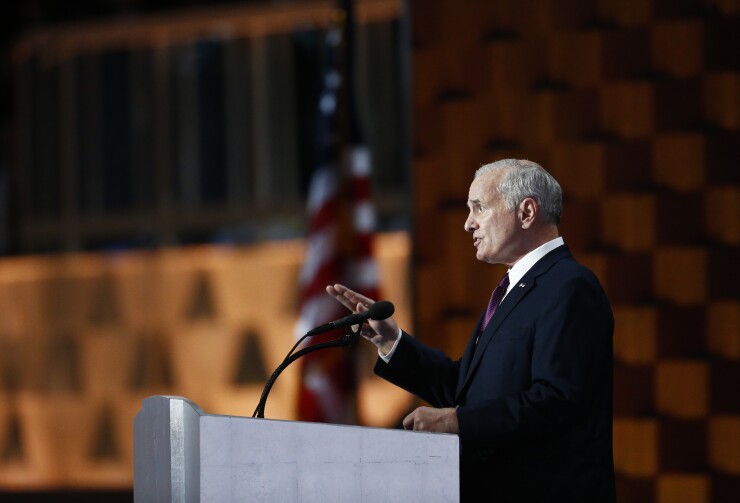CHICAGO – The legality of Minnesota Gov. Mark Dayton’s veto of the legislature’s budget will be decided by the state Supreme Court.
Dayton suffered a first round loss in his court battle with GOP lawmakers on Wednesday when Ramsey County District Court Chief Judge John Guthmann ruled Dayton’s veto violated the state constitution.
“As a result of violating the Separation of Powers clause of the Minnesota Constitution, the governor’s line-item vetoes are unconstitutional, null and void,” the judge’s ruling said.
The governor, a member of the Democratic-Farmer-Labor Party, signed most of the budget passed by the GOP-led legislature but vetoed the legislature’s budget appropriation in an attempt to draw lawmakers back to the negotiating table on tax cuts he opposed.
Dayton called the ruling a first step in a dispute that will likely wind up before the state’s high court. All of the parties in the lawsuit had previously agreed to seek an accelerated review of any district level action by the Minnesota Supreme Court.

“Accordingly, I have asked Sam Hanson, my legal counsel, to appeal this decision to the Minnesota Supreme Court,” Dayton said in a statement. “As I have said, the tax bill passed last May by Republican legislators jeopardizes Minnesota’s structurally balanced budget in the future.”
The lack of a legislative appropriation had threatened a lease payment owed later this year which goes to repay borrowing for the Senate’s office building. S&P Global Ratings had put the state on CreditWatch over the issue. Dayton and lawmakers agreed to temporary funding until at least Oct. 1 that removed the threat, the funding was approved by the court. and S&P removed the state from watch.
The budget dispute and political divisions between Dayton and legislative leaders are not expected to affect underlying local government ratings, S&P said in a report out this week.
“We expect the budget, as it pertains to state aid for local governments, to remain unchanged, and we do not expect it to affect underlying local government ratings,” analysts wrote.
The state budget includes a $15 million increase to local government aid to cities, a $25.5 million increase to county program aid, and 2% increase in basic per-pupil funding with another and $50 million going to expand pre-school.
The report warned that local governments are struggling with high debt and growing pension liabilities, but despite those pressures underlying credit conditions are expected to remain stable over the next year.
“Statewide, local governments are benefiting from modest but steady economic growth. The economic expansion has led to stable funding for cities and counties, which rely more on property taxes. We also expect school district ratings, where operations are primarily state aid dependent, to remain stable,” S&P added.
City and county credit ratings are supported by very high reserves relative to national peers but high debt metrics remain a credit weakness and high pension liabilities are emerging as a potential credit risk for cities, counties, and school districts.
“If investment returns remain weak and the state keeps failing to adjust its statutory contributions in line with the plans' actuarial determined contributions, there may be credit pressure over the medium-to-long term,” S&P wrote.





